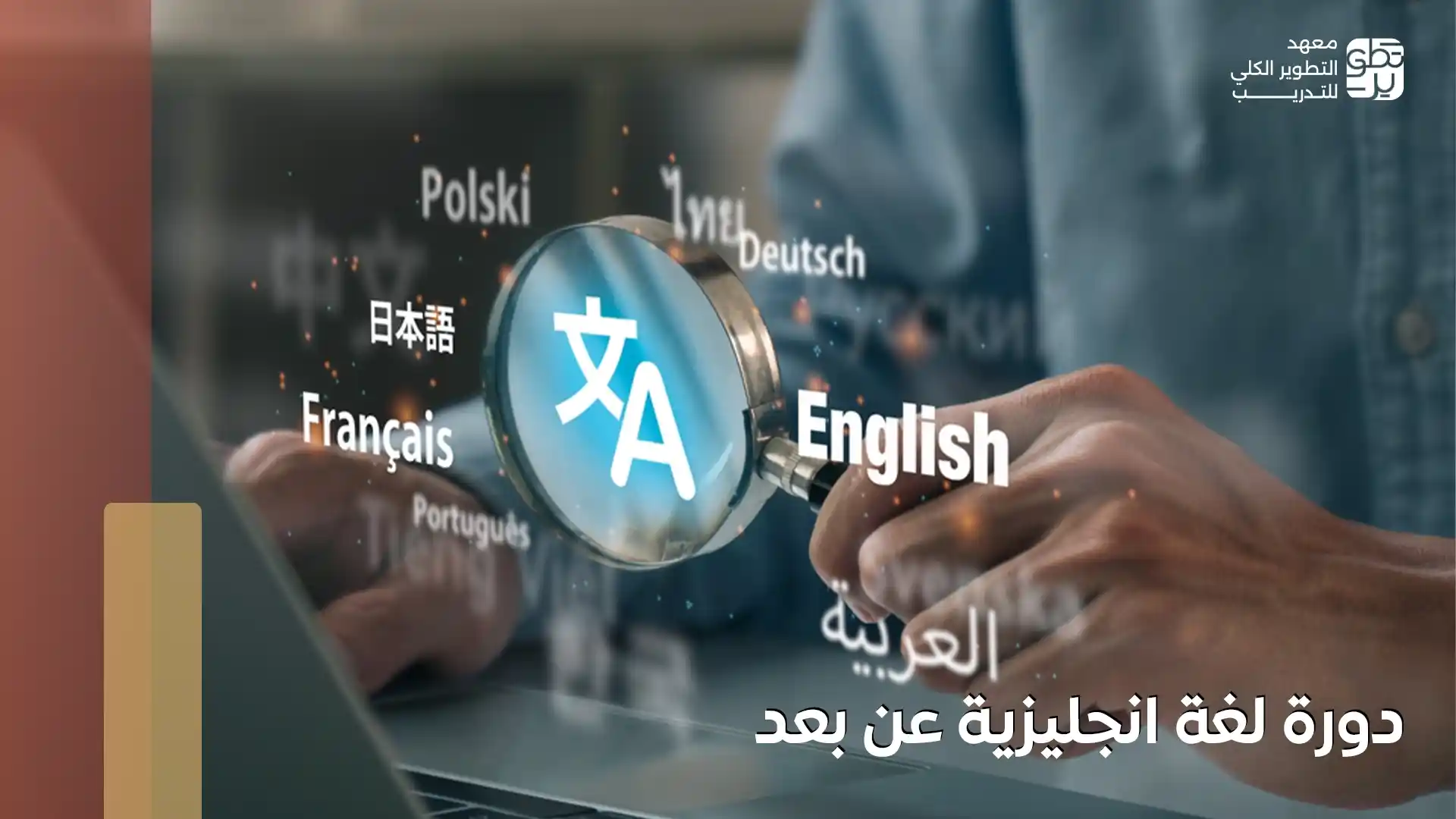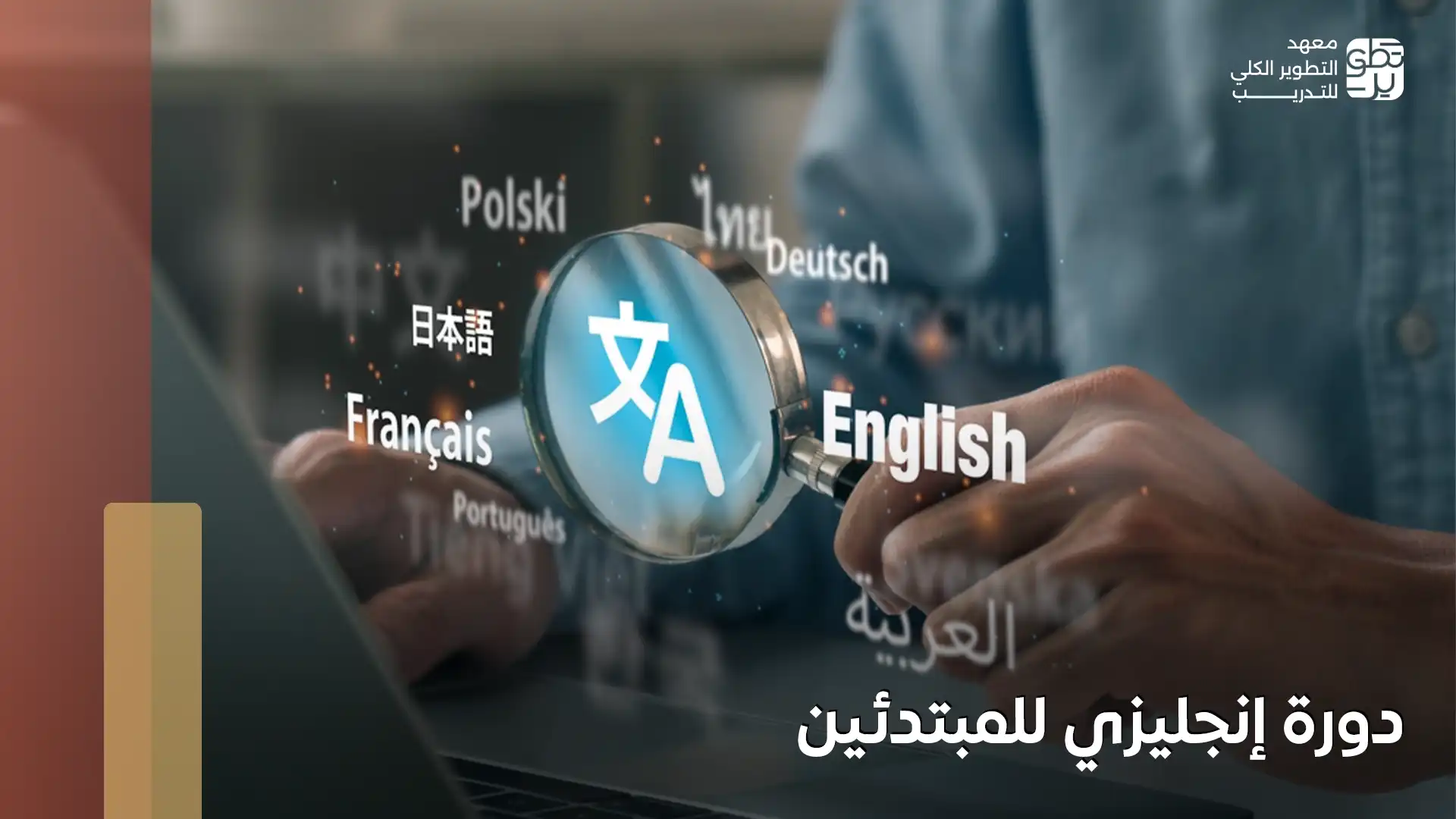As experts in corporate development, we can assure you that training is the fastest path to boosting performance and productivity. Every Riyal invested in employee training returns multiple times in loyalty, efficiency, and results.
Follow along to learn about the types of corporate training programs offered by Macro Development Institute for Training for Training, and how we can design a customized training program for your company that meets your objectives precisely and professionally.
In this article, we will guide you step by step to learn about training different employee groups based on their roles within the organization, from training receptionists in communication and etiquette, training customer service employees in professional client handling, to developing leaders and managers through advanced leadership and decision-making courses.
Types of Corporate Training by Different Roles
When we talk about types of corporate training, we refer to all programs and initiatives implemented within organizations to enhance employee performance, develop skills, and ensure alignment with company goals. Types of training differ depending on the nature of the activity and the organization’s objectives, but the most prominent are:
1- Onboarding Training
This training aims to prepare new employees and introduce them to the company's culture and the nature of their work, helping them quickly adapt to the work environment. It includes familiarizing them with the company's culture, values, and vision, as well as explaining internal procedures and systems. The goal is to create a strong start for the employee and encourage them to engage effectively with the team from day one.
2- Technical Training
The purpose of this training is to develop technical and specialized skills according to the job, such as programming, data analysis, or project management. Employees are trained to use the modern tools and techniques required by the job to ensure continuous skill development. Progress is regularly evaluated to ensure practical application of these skills.
3- Soft Skills Training
This type of training is important for improving communication, teamwork, and problem-solving skills within the company. It helps employees build healthy relationships in the workplace and enhances their ability to interact with colleagues and managers. It also includes learning how to manage time effectively and contribute to creating a productive work environment.
4- Leadership and Management Training
This training aims to prepare managers and leaders with the necessary skills for decision-making, delegation, and handling leadership challenges. They are trained on essential skills like planning, delegating, and conflict resolution. They also learn how to manage their teams efficiently and elevate group performance.
5- Compliance Training
This training focuses on raising employee awareness of company laws, company policies, data safety, and the legal regulations applicable both locally and internationally. It includes training on data protection policies and information security. This training helps reduce legal risks and ensures compliance with relevant regulations.
6- Sales and Customer Service Training
This training aims to improve persuasion skills, customer handling, and increasing sales in a professional manner. The training includes techniques of persuasion, handling complaints, and achieving the highest levels of customer satisfaction. It also helps employees build long-term relationships with customers and achieve the company's business goals.
7- Safety and Security Training
The goal of this training is to reduce accidents and ensure a safe working environment. It covers safety procedures in the workplace, proper equipment usage, and how to act in emergencies. Employees also learn how to prevent health and environmental risks that could affect their safety.
8- E-learning and Blended Training
This type of training uses digital platforms to provide flexible and quick learning opportunities for employees. It includes a variety of methods such as instructional videos, interactive quizzes, and virtual workshops. This training allows employees to learn anytime, anywhere, according to their schedule.
Why Do Types of Corporate Training Differ Across Sectors?
Several reasons include:
- Nature of Work and Sector: A tech company needs different training compared to a service or manufacturing company.
- Organizational Level: New employees require different training from managers or sales teams.
- Company Goals: If a company wants to develop leadership or improve customer service, it will select a specific training type.
- Costs and Technology: Some programs require tools or digital platforms, making them more suitable for certain sectors.
If you are looking for employee training courses or types of corporate training suitable for your organization, contact us now and the team at Macro Development Institute for Training will help you choose the most suitable program for your staff.
Types of Employee Training
Here’s a simple explanation of employee training types, clarifying the differences between technical, managerial, and behavioral training, and when an organization needs each type:
- Technical Training: Focuses on equipping employees with the technical knowledge and skills required to perform their job directly, such as using specific software, operating machinery, or applying a system.
- Leadership Training: Directed at employees in managerial positions, covering skills like planning, decision-making, delegation, and leadership communication.
- Behavioral / Soft Skills Training: Focuses on personal and interpersonal skill development, such as communication, teamwork, conflict management, and emotional intelligence.
For information on the most important employee training courses or which types of corporate training achieve faster results for your organization, do not hesitate to contact us for a free consultation with training experts.
Importance of Choosing the Right Training Types in Companies
Selecting the appropriate training types in companies plays a vital role in improving employee performance and contributing to the success of the company. With proper training, the following can be achieved:
- Increased Productivity: A well-trained employee can perform their tasks more efficiently, leading to an overall improvement in the company’s performance.
- Boosted Morale: Training contributes to personal and professional development, which enhances employee satisfaction and engagement at work.
- Adaptation to Changes: Training helps companies adapt to technological and organizational changes in the market, ensuring that employees are ready to face new challenges.
Choosing the right types of training in companies is one of the key factors that impact employee performance and the company’s competitiveness. Therefore, companies should focus on providing comprehensive training programs that align with market needs and job requirements.
Different Training Methods in Companies
Training methods vary depending on the company's needs and available resources. Some of the most common methods include:
- Traditional (Interactive) Training: Includes workshops and classroom sessions that involve direct interaction between the trainer and trainees.
- E-Learning: Conducted through digital platforms or instructional videos, providing a flexible learning experience.
- Blended Learning: Combines traditional and e-learning to offer a diverse learning approach.
- Mentoring: Employees are guided by more experienced staff to develop their skills.
- On-the-Job Training: Employees learn by performing daily tasks under direct supervision.
Each training method has its own specific benefits and is suited for particular needs within the company. By combining various training methods and types, companies can achieve the best training results and ensure sustainable employee development.
Key Skills Focused on in Receptionist Training
A receptionist is the first point of contact for any company, so visitors’ first impressions heavily depend on their interaction. That’s why companies design specialized corporate training programs to professionally qualify receptionists.
Receptionist training typically develops the following core skills:
- Effective Communication Skills: How to speak politely and use positive body language.
- Organizational and Time Management Skills: Scheduling appointments and coordinating visitor meetings efficiently.
- Professionalism in Customer Interaction: Both in-person, over the phone, and via email.
If you want to enhance your employees’ performance and benefit from corporate training courses but don’t know where to start, let us guide you through the types of corporate training we offer and how we can design a customized plan for you.
Key Training Programs for Call Center Employees
Call center training aims to improve communication quality with clients and ensure an excellent customer experience in every interaction. Employees in call centers are the link between the company and the client, and each interaction affects the company’s reputation.
Training programs focus on developing these essential skills:
- Time Management and Call Organization: Reducing wait times and increasing productivity.
- Professional Handling of Upset Customers: Turning negative situations into positive experiences.
- Mastering Communication Systems and CRM Software: Ensuring accuracy and quick solutions.
Successful companies’ training plans for new call center employees include simulating real scenarios and continuously evaluating performance to meet the highest service standards.
Discover the types of corporate training we offer at Macro Development Institute for Training and learn about the latest certified training programs for employees.
Management Development in the Company: Administrative Employee Training
At Macro Development Institute for Training for Training, we believe any company’s success begins with competent management. We offer specialized programs aimed at developing company management and enhancing employee performance.
Key administrative training paths typically focus on:
- Leadership: Equipping managers not only to perform tasks but to lead teams and guide individuals toward objectives.
- Time Management: Managers often face multiple tasks and tight deadlines.
- Problem-Solving: Administrators need analytical and proactive skills to handle daily challenges or changes.
Visit our website to explore the most in-demand types of corporate training in the Saudi market and learn how we help our clients achieve tangible results from the first week of training.
Tips for Choosing Training Programs and Types in Companies
Choosing the right training programs and types for companies requires a deep understanding of the company’s and employees' needs. By following certain tips, the effectiveness of training can be improved, ensuring the achievement of the desired goals. Here are the most important ones:
- Identify Training Needs: It’s crucial for the company to clearly define the skills needed before selecting the appropriate type of training.
- Diversify Training Methods: It’s best to use a mix of traditional, e-learning, and blended training methods to meet the diverse needs of employees.
- Continuous Training: Training should be an ongoing process that keeps up with market changes and helps employees continuously develop.
- Leverage Experience: Choosing experienced trainers contributes to improving the training’s effectiveness and ensures tangible results.
- Interaction and Participation: Training should involve continuous interaction between the trainer and employees to ensure understanding and application of acquired skills.
Choosing the right types of training programs in companies requires a thorough analysis of needs and strategic thinking. By following these tips, the impact of training can be enhanced, resulting in maximum benefit for both employees and the company.
Challenges of Training in Companies and How to Overcome Them
Despite the importance of training in developing employee skills, many challenges can arise when implementing training programs, such as:
- Lack of Time: Companies may face difficulty in allocating enough time for training. To overcome this issue, e-learning or short training sessions during work hours or breaks can be utilized.
- Limited Financial Resources: If budget constraints are a barrier, internal training or online courses, which are more cost-effective compared to traditional training, can be considered.
- Employee Resistance to Change: Some employees may resist adapting to new working methods. To address this challenge, employees can be motivated by setting clear goals and offering incentive rewards.
- Choosing Inappropriate Methods: Inadequate methods can reduce the effectiveness of training. It is important to assess employees' needs and select the most suitable learning method based on these evaluations.
- Inadequate Evaluation: The absence of a mechanism to assess training results can affect its effectiveness. Key performance indicators should be set to measure the success of training and its impact on employee performance.
Overcoming training challenges requires clear strategies and effective tools. By using the appropriate solutions, companies can ensure successful training that contributes to improving employees’ skills and overall productivity.
Why Sales Training is One of the Most Important Corporate Training Types
Macro Development Institute for Training offers professional programs targeting sales staff with a focus on results and achieving goals. Reasons to invest in sales training include:
- Research shows that investing in sales teams directly correlates with revenue growth, and effective sales training programs achieve high ROI and improve deal closure rates.
- Sales training enhances the company’s professionalism toward clients, improves team performance, and reduces costly mistakes.
Key Skills Focused on in Sales Training:
- Effective Selling Skills: Discovering client needs, proposing value, and closing deals successfully.
- Negotiation and Persuasion: Preparing staff to handle objections professionally and turn “no” into “yes.”
- Mastering Communication and Follow-Up Systems: Using client management tools, time management, and follow-up to ensure agreements are implemented.
Sample Corporate Training Certificate
After completing our in-company training program, Macro Development Institute for Training issues a training certificate verifying that the employee successfully completed the training, showcasing the skills and knowledge gained.
Key Elements of a Corporate Training Certificate:
- Full name of the employee (Recipient Name)
- Job title or department (Job Title / Department)
- Training program name (Training Program Title)
- Duration or hours of training (Training Duration / Dates)
- Date of issue (Date of Issue)
- Signature of supervisor, manager, or authorized entity (Signature)
- Company logo and official name (Company Logo & Name)
Register now through our corporate registration form to start applying the best types of corporate training within your organization.
How to Prepare a Training Plan for New Employees at Macro Development Institute for Training
We handle the entire training plan for new employees within companies, using clear and organized steps to ensure optimal results:
- Identify required skills and knowledge for new employees to perform tasks confidently.
- Set measurable objectives aligned with company goals to ensure real impact.
- Choose appropriate training types: practical, lectures, or soft skills, based on the job and department.
- Prepare a clear schedule for gradual and effective integration.
- Provide materials and training guides: employee handbooks, videos, and practical templates for quick adaptation.
- Monitor progress and provide continuous support for maximum benefit.
- Collect feedback from trainees and supervisors to measure goal achievement.
This ensures every new employee adds real value from day one.
We’ve seen how organized professional training transforms work environments and how a well-designed training plan can turn ordinary teams into confident leaders of success.
As a company owner or HR manager, contact us now at Macro Development Institute for Training to explore programs best suited to your company or register directly via our employee training form to start your real development journey.
Frequently Asked Questions
What are the four parts of training?
The four parts are: needs assessment, program design, training delivery, and results evaluation to ensure objectives are met.
What are the seven types of training?
The top seven types are: on-the-job training, e-learning, practical training, individual training, workshops, lectures, and cooperative in-company training.






















































